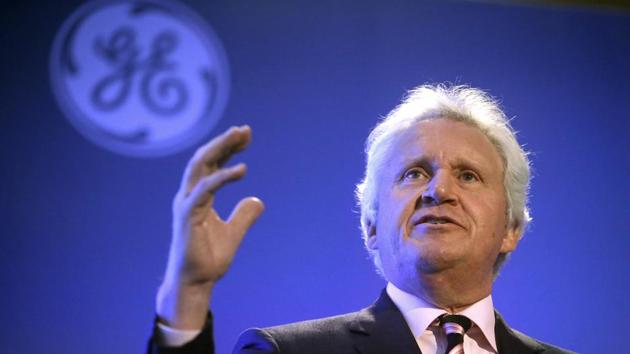Leadership and succession lessons from General Electric and Infosys
The challenge for a leader is to manage across horizons, or, as Jeff Immelt puts it succinctly, “act big and small, long and short”. Vishal Sikka seems to be getting the big and long, right, and floundering a bit on the small and short
Leadership and succession planning are best (and most truthfully) assessed in hindsight and by history.

As I write this column, l’affaire Infosys is back among the headlines. After a period of relative calm at a company where a co-founder and former chairman has a different (and publicly articulated) view from the current leadership on how to run things, the situation has flared up again. There has been a spate of senior-level departures and reports that the co-founder and former chairman is unhappy that the company hasn’t made public a report investigating alleged wrongdoings in a contentious acquisition. I’ve avoided taking names simply because this column isn’t about any of these issues (or people), but, as the opening line suggests, leadership.
Indeed, it may turn out that the problem is that Infosys’s current CEO Vishal Sikka, while reading the future correctly, and making the kind of bets the company needs to if it wants to succeed in that future, hasn’t really been a great operational manager.
If that is the case (I do not know the CEO well enough to make that call), he won’t be the first. No 5 in a list of 10 ‘Things I Learned’ published by outgoing General Electric (GE) CEO Jeff Immelt on LinkedIn on July 31 (his last day on the job) reads, “Act big and small, long and short; keep a lot of thoughts to yourself.” Explaining the first part of that, Immelt goes on to say: “The best leaders are versatile thinkers. Must be comfortable with strategy and details. Must have a world view that is 10-20 years out; and quarterly.”
Immelt’s advice is pretty much what one of the best management books of the 1990s says. The book is The Alchemy of Growth and it was written by Mehrdad Baghai, Stephen Coley, and David White, all consultants at McKinsey & Co. The book introduced the world to the three horizons of management: Horizon 1, or “defending core businesses”; Horizon 2, or “nurturing emerging businesses;” and Horizon 3, or “creating genuinely new businesses.” The first corresponds roughly to the short-term, and is critical to quarterly and annual financial performance. The second corresponds to the medium-term, and the third ensures the long-term survival and success of the organisation.
The challenge is to manage across horizons, or, as Immelt puts it succinctly, “act big and small, long and short.” Sikka, whom several people I know call a “tech visionary” and “classic big picture man”, seems to be getting the big and long, right, and floundering a bit on the small and short.
Interestingly, that’s the same sort of criticism that is being directed at Immelt, who spent time and money building GE’s considerable industrial base and also focused on what the company calls “Industrial Internet”, the play of Big Data and the kind of heavy equipment the company is known for (jet engines, turbines, reactors). But the company’s performance (and that of its stock) flagged in recent years, and it came under pressure from activist investor Nelson Patz earlier this year, eventually agreeing to cut costs and link executive bonuses to operating profit targets. Over the past decade, the GE stock has trailed the benchmark S&P 500 index, with the gap widening in recent months.
Still, it does look as if its “Industrial Internet” gambit is working for GE – only, it might be Immelt’s replacement, John Flannery, once the head of the conglomerate’s Indian arm, who reaps the benefits of this.
For Infosys, the big and long is really all about a new business model that isn’t built around hourly billing rates of hundreds of thousands of engineers, but on its ability to help its customers make the shift, and get the most out of digital – which, as that sentence suggests, is more a state of being than anything else. Sikka is trying to do this through a mix of innovation and acquisition, but it is too early to measure the results.
At GE, it took Immelt 16 years to transform a company that, shortly after he took over, found itself coping with a new world (and in more ways than one) – and he still left many analysts and shareholders dissatisfied. Immelt was aware of this. No. 3 in his list is headlined: “The future comes. Never apologize for investing in it.” He goes on to elaborate: “Sometimes our owners have a different time horizon or value metrics more than the process. Good business people value the journey as well.”
R Sukumar is editor, Mint
letters@hindustantimes.com





